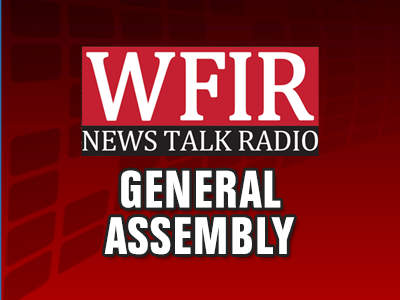WASHINGTON — A fragile ceasefire between Israel and Iran appeared to be holding for a second day as the conflict shifted from active military strikes to a political battle in Washington. Top Pentagon officials publicly defended the impact of recent U.S. airstrikes on Thursday, pushing back against leaked intelligence reports that questioned their effectiveness, while President Donald Trump’s national security team prepared for a contentious, classified briefing with the Senate.
The relative quiet on the ground in the Middle East stands in stark contrast to the political storm brewing in the U.S. capital over the president’s decision to bomb three Iranian nuclear sites and his administration’s subsequent handling of the fallout.
Trump, Pentagon Clash With Intelligence Reports
At a Pentagon news conference Thursday morning, Defense Secretary Pete Hegseth and Gen. Dan Caine responded to a leaked U.S. intelligence assessment suggesting that last weekend’s strikes had only set back Iran’s nuclear program by a few months.
Hegseth dismissed the leaked report as “preliminary” and scolded the media for “breathlessly” focusing on it. President Trump has forcefully rejected the assessment, insisting the strikes were “devastating” and that questioning his version of events was “unpatriotic” and upsetting to the pilots who flew the mission. This public dispute highlights a long-running theme of the Trump presidency: a deep distrust of the intelligence community.
A High-Stakes Congressional Briefing
The administration’s top national security officials, including CIA Director John Ratcliffe, Secretary of State Marco Rubio, and Defense Secretary Hegseth, are scheduled to brief senators in a classified session Thursday.
Lawmakers from both parties have expressed frustration over the White House’s failure to seek congressional advice before the initial military action. The briefing comes as the Senate is expected to vote this week on a resolution to reclaim its authority and require congressional approval for any further strikes on Iran.
Timeline of the Recent Conflict
- Sunday, June 22: The United States launched direct military action, striking three of Iran’s primary nuclear facilities.
- Monday, June 23: Iran retaliated with a missile attack on the Al Udeid Air Base in Qatar, which houses U.S. troops. The attack caused no casualties.
- Tuesday, June 24: A U.S.-brokered ceasefire collapsed within hours. After Israel reported new missile fire, which Iran denied, Israeli Defense Minister Israel Katz ordered retaliatory strikes. The barrage from Iran killed at least four people in the southern Israeli city of Beersheba.
- Trump’s Rebuke of Israel: In an unusual move, President Trump publicly blamed both sides for the ceasefire’s failure and warned Israel directly on social media to “BRING YOUR PILOTS HOME, NOW!”



